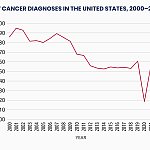
Intrinsic capacity (IC) is defined by the
A person’s intrinsic capacity is influenced by a number of factors, including the presence of diseases, injuries and age-related changes.
Maintaining your intrinsic capacity is key to healthy aging. However, measuring intrinsic capacity has, until now, required sophisticated equipment and trained personnel.
A new study has found that measuring
The study, which is published in
Thomas M. Holland, MD, MS, a physician-scientist and assistant professor at the RUSH Institute for Healthy Aging, RUSH University, College of Health Sciences, who was not involved in this study, commented for Medical News Today that:
“A blood- or saliva-based test for intrinsic capacity, known as DNAm IC, is a very promising tool in aging science. […] This test uses DNA methylation patterns, chemical tags that regulate gene activity, to estimate your IC biologically, offering insights into how well your body is functioning compared to your chronological age.”
“One of the most critical aspects is that this test can be done with a simple blood or saliva sample, making it accessible and noninvasive. It tells us not just how old you are, but how well you are aging, which is much more meaningful to help inform which interventions should be implemented, if any, to help prevent future health problems,” Holland explained.
Elena Rolt, MSc, DipION, IFMCP, a Registered Nutritional Therapist and Functional Medicine Practitioner and cofounder of Health Miro, who was not involved in this research, also welcomed the findings.
“The DNA methylation-based intrinsic capacity (DNAm IC) test shows significant potential as a practical measure of biological aging,“ Rolt told MNT. “Unlike traditional epigenetic clock based tests, it also captures functional aging more directly.“
“As it reflects immune aging, physical capacity and lifestyle-related risk factors, this test may be particularly relevant for personalised aging interventions and preventive strategies,” she added.
“However,” Rolt cautioned, “its use should be complementary to other markers — e.g. PhenoAge, GrimAge, functional tests — and its utility in clinical practice will depend on further validation.”
Using data from 1,014 people from the INSPIRE-T cohort, aged between 20 and 102 years, the researchers developed an IC score using five aspects of age-related decline:
From blood and saliva tests, the researchers collected data on
They used this, and the age-related decline data, to construct an
The researchers found that DNAm IC was strongly associated with overall health. People with the highest DNAm IC had better lung function, faster walking speed, greater bone mineral density and were more likely to view themselves as healthy.
And people with a high DNAm IC lived, on average, 5.5 years longer than those with a low DNAm IC.
Holland told us this was a very significant finding: “Scientifically, this reflects strong associations between high IC and better immune function, lower chronic inflammation, and reduced risk for diseases like hypertension, heart failure, stroke, and other age-related conditions.”
“Simply,” he added, “if your body is functioning well internally you are more likely to live longer and stay healthier. This test doesn’t just give a snapshot of your current state; it may also offer a glimpse into your future health.”
In everyone, intrinsic capacity declines with age, but there are measures that can help to slow that decline.
This study found that people with a high dietary intake of oily fish, and sugar intake that was within recommended guidelines (no more than 5% of total energy intake), were more likely to have a high DNAm IC.
Tunç Tiryaki, board-certified plastic surgeon and founder of the London Regenerative Institute, who was not involved in the recent study, explained the association:
“Oily fish are rich in long-chain
“Conversely, excessive sugar intake is known to accelerate glycation, oxidative stress, insulin resistance and chronic inflammation, all of which impair IC,” Tiryaki told MNT.
“Staying within recommended sugar limits likely supports metabolic flexibility and reduces inflammatory burden, preserving cognitive and physical function. These dietary factors likely influence DNAm IC by modulating epigenetic regulation and immune aging, thus helping maintain functional capacity,“ he detailed.
Holland, Tiryaki, and Rolt recommended a number of measures to help ensure healthy aging. These include:
Holland told us that the DNAm clock was a major advance in functional aging science: “It links molecular biology with real-world outcomes like mobility, cognition and lifespan. While further validation is needed, especially in older adults with low IC, this study lays the groundwork for using personalised epigenetic markers to guide interventions in preventive geriatrics, longevity medicine and precision public health.”
“DNAm IC reflects not only how long you might live, but how well you might function, and that shift in focus is central to meaningful longevity.”
– Thomas M. Holland, MD, MS





